Nutritionists Say You’re Probably Drinking Water All Wrong

Are you drinking water the right way? “Water is your body’s principal chemical component and makes up about 50% to 70% of your body weight,” says the Mayo Clinic. “Your body depends on water to survive. Every cell, tissue and organ in your body needs water to work properly. Lack of water can lead to dehydration — a condition that occurs when you don’t have enough water in your body to carry out normal functions. Even mild dehydration can drain your energy and make you tired.” Here are ways you’re probably drinking water wrong, according to nutritionists.
RELATED: 25 Countries Where You Shouldn’t Drink the Tap Water.
High-Water Foods
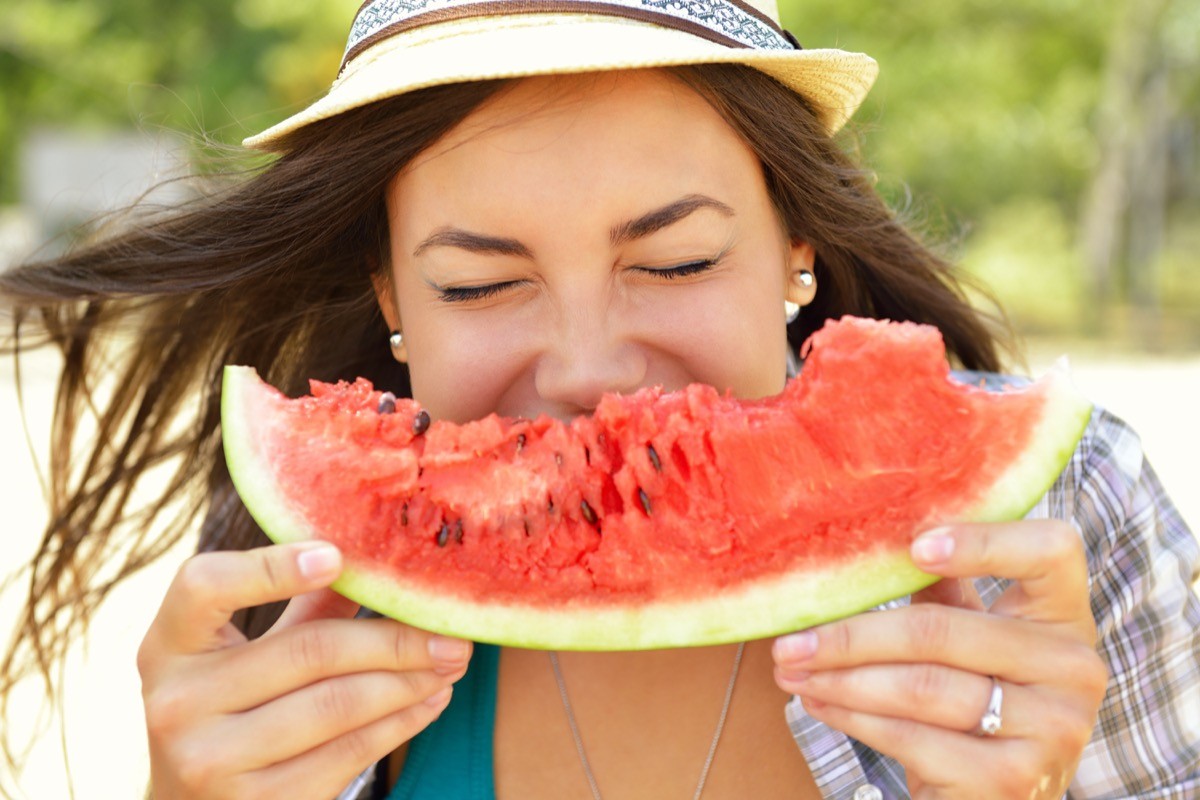
Slide 1: High-Water FoodsConsuming high-water fruits are a great way to support hydration. “It sounds silly, but many of us drink water the wrong way,” Dennis Cardone, DO, osteopathic sports medicine specialist and chief of primary care sports medicine at NYU Langone Health, tells the American Osteopathic Association. “Fortunately, a few simple changes will vastly improve your hydration. I encourage people to drink water with a meal or snack, which is going to be a much more effective way to sustain hydration. Fruits, in particular, are hydrating on their own and will help the body absorb more water.”
Hydrating At Rest
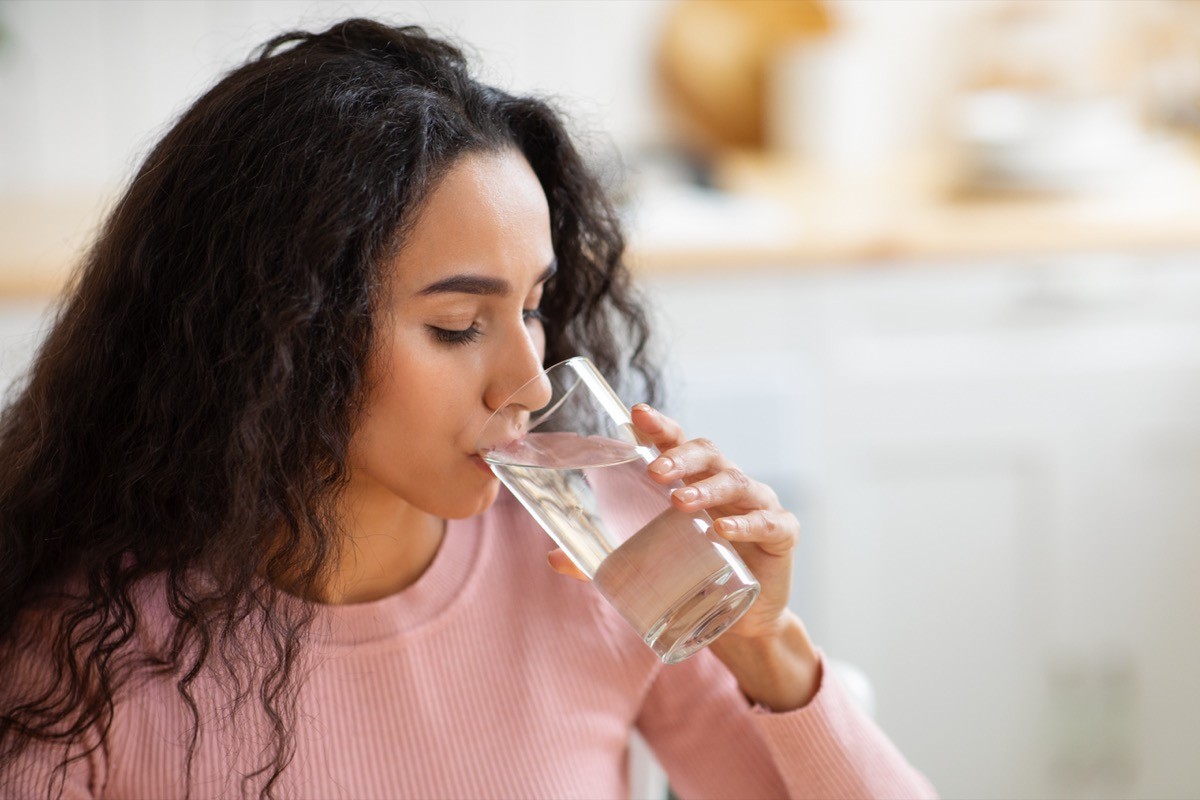
Don’t forget to hydrate even when you’re not working out. “You also need to hydrate while you’re sitting at your desk at work, not just at the gym,” Keri Gans, MS, RD, tells Women’s Health. “I even have a sticky note on my computer that says, ‘Drink water.'”
Electrolyte Replacement
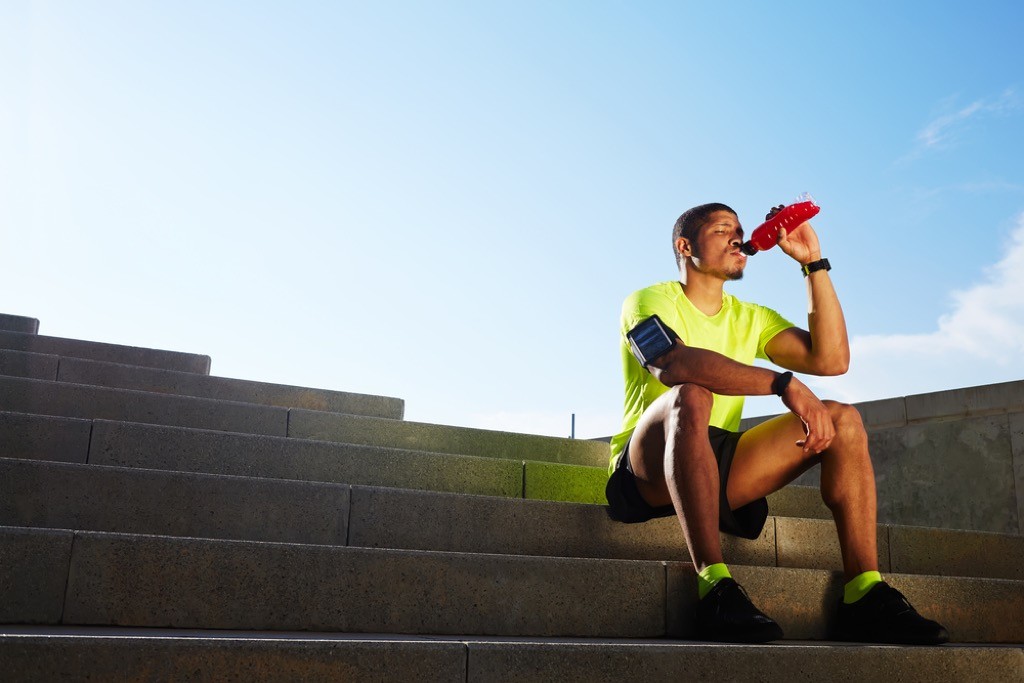
It’s vital to replace not just water but electrolytes after exercise. “The fluid and electrolytes you lose in sweat need to be replaced,” Amanda Beaver, wellness dietitian at Houston Methodist. “Fluid helps your heart pump blood to your hard-working muscles and helps regulate your body temperature, while electrolytes are essential for muscle contractions. Drinking too much fluid can lead to a life-threatening condition called hyponatremia, in which sodium levels in the blood fall too low by being diluted by excess fluid or losing excess sodium from sweat without replacing it. Although this can definitely happen to men, women may be at greater risk because they usually have a smaller body size and don’t sweat as much.”
Signs of Overhydration
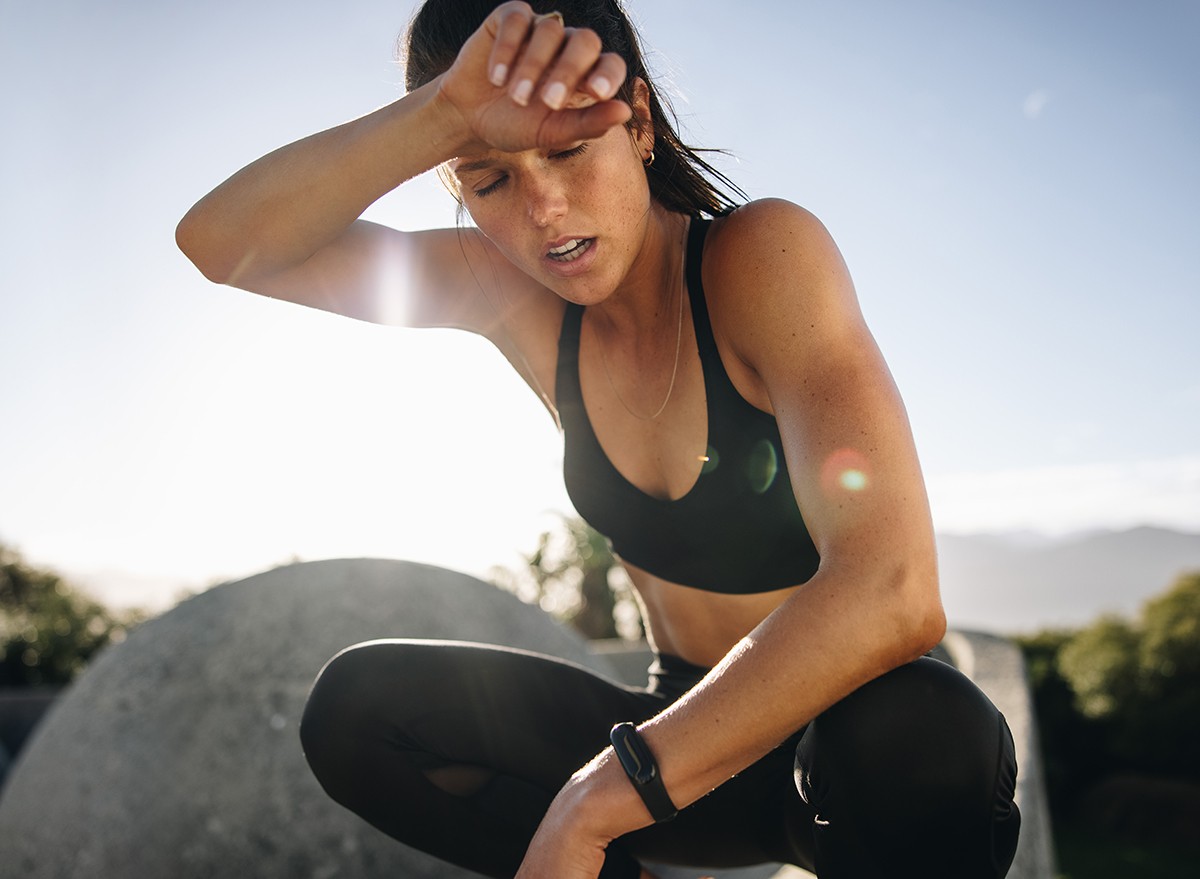
Yes, it’s possible to have too much water. “For most people, dehydration is the much greater issue,” says Gundersen Health. “However, if you suspect you may be overhydrated, look for symptoms like cloudy thinking, nausea and vomiting, muscle weakness, spasms or cramps and headaches.”
RELATED: The No. 1 Beverage for Staying Hydrated.
Overhydration Issues
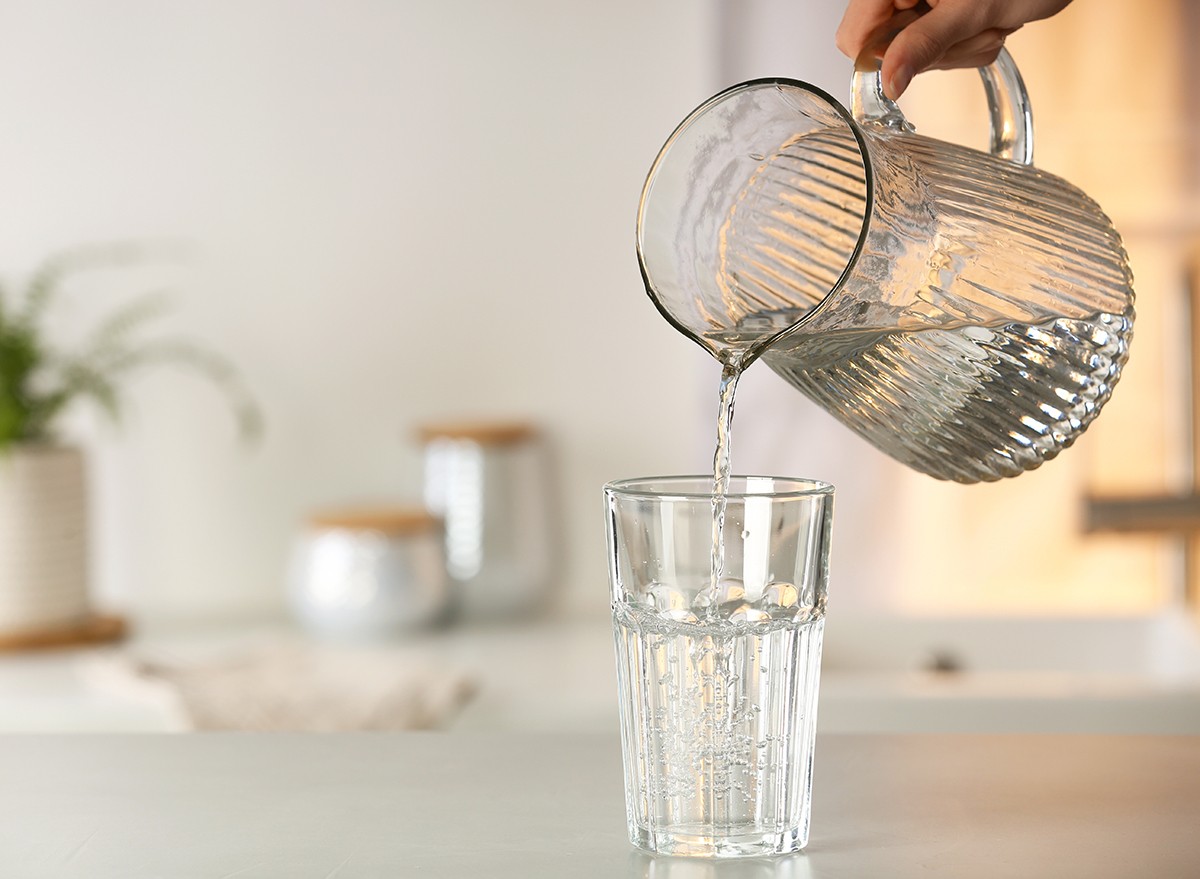
To prevent overhydration, use your thirst cues and urine color as a guide,” says Gundersen Health. “Drink water when you are thirsty and until your urine is light yellow to clear. Avoid drinking more than 1 liter of fluid per hour which will allow your kidneys to get rid of excess water. If you are experiencing excessive thirst, tell your primary care doctor right away, as this may be a symptom of another serious health issue.”
Listen To Your Body
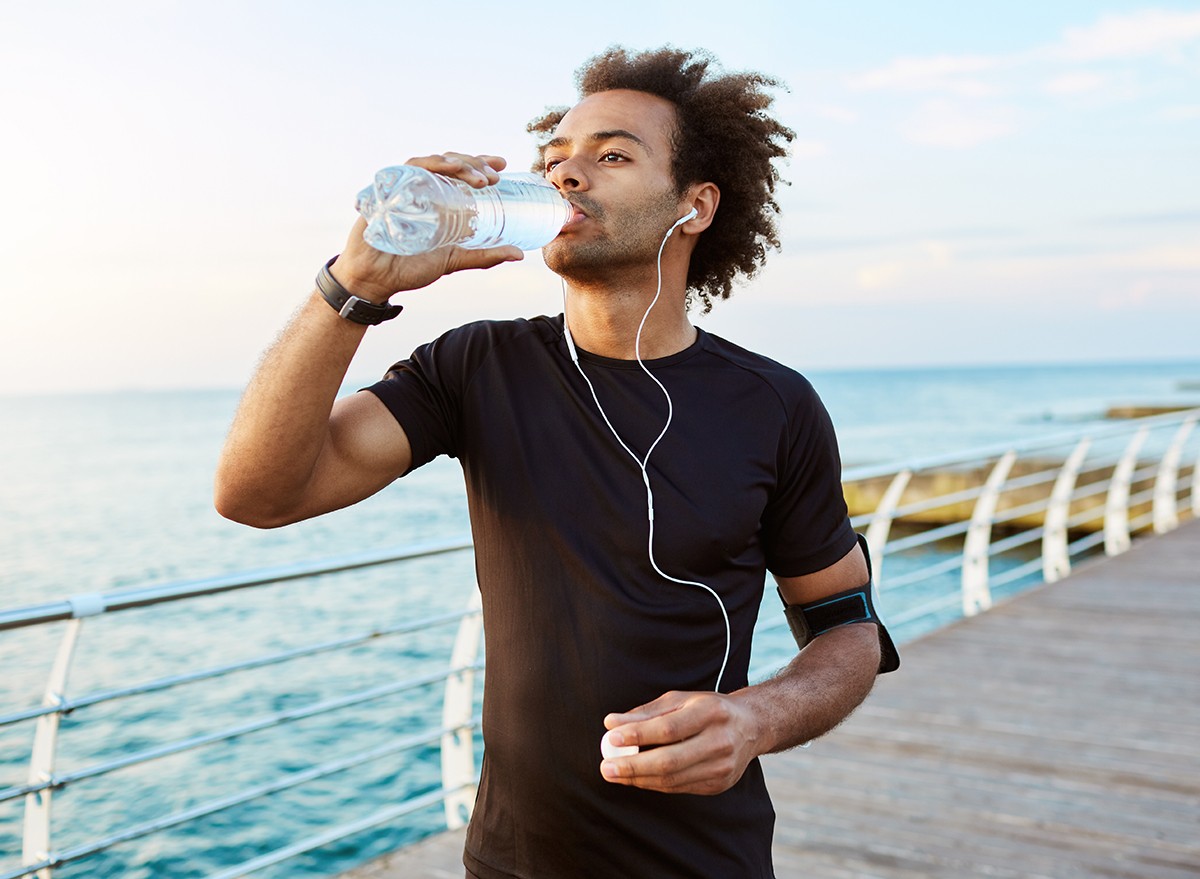
There is no one-size-fits all approach to hydration. “The best advice is to listen to your body,” Tamara Hew-Butler, associate professor of exercise and sports science at Wayne State University, tells NPR. “If you get thirsty, drink water. If you’re not thirsty, you don’t need to drink water. This will protect you against the dangers of both drinking too much and drinking too little. And this recommendation applies to [people of] all shapes and sizes in all temperature conditions.”